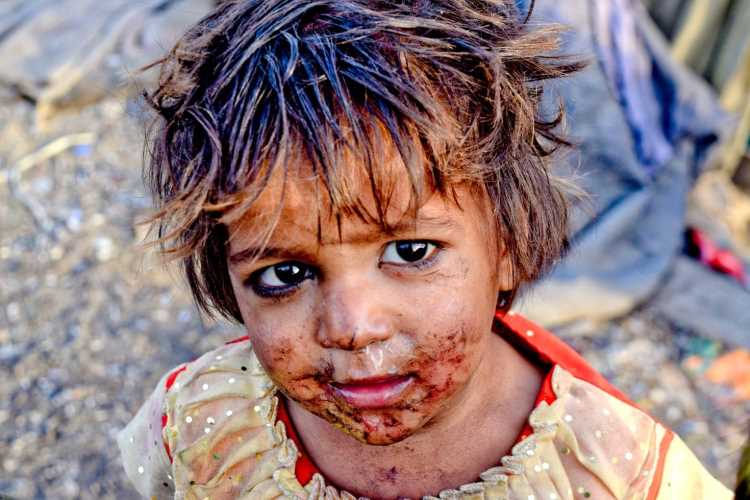
By Shraddha Srivastava
Awareness and training programme is an essential part of government policy implementation. It reduces corruption, enhances transparency, promotes better delivery of services, and improves government responsiveness. As an awareness and training programme already exists under the Integrated Child Development Services (ICDS) scheme, is there a need for another scheme to create self-awareness among mothers of ICDS-beneficiaries?
There is a budget provision for awareness and training in most government programmes and schemes. In 2021-22, the government has allocated a meagre amount of Rs 0.18 million for creating nutrition and health awareness under ICDS, which may not be enough considering the scope of the scheme.
ICDS scheme was launched in 1975 to provide food, primary healthcare, immunisation, and preschool education to children under 6 years of age and their mothers. It has become one of the largest such schemes in the world. Anganwadi centres is the platform for providing all services under the scheme. The scheme addresses a number of sustainable development goals (SDGs) set by the members of the United Nations in 2015 under the 2030 agenda.
In the perspective of the awareness program, on the village level, The Village Health Sanitation and Nutrition (VHNS) committee set up by the ministry of women and child development of the government of India arranges a meeting once a month for creating awareness related to nutrition and health among the parents of ICDS beneficiaries.
READ I Covid-19 vaccine diplomacy: India’s chance to deepen its strategic engagements
ICDS scheme eyes behaviour change
The ministry of women and child development under POSHAN Abhiyan has directed the State/UT governments to organise community-based traditional events to promote and support behaviour change, improve maternal and child nutrition, and to increase awareness among the stakeholders. Under this campaign, a nutrition month (poshan maah) is organized once in a year in which malnutrition-related challenges (through creating awareness) are addressed. In this month, a number of activities like poshan workshops/seminars, poshan walks, panchayat meetings, prabhat pheries, youth group meetings, haat-bazaar acivities, farmer’s club meetings, local leader meetings, harvest festivals, nukkad natak are conducted to create awareness among the public.
The state governments also have started several awareness programmes. For example, the department of women development and child welfare of the Telangana government organises one week IEC campaign with the participation of all stakeholders at the village, mandal, and district levels to create awareness and disseminate information about nutrition, health and social issues. In Maharashtra, WCD department and Rajmata Jijau mother-child health and nutrition mission are working towards building awareness on nutrition, identification of anganwadis, mobilisation of trainees, providing training infrastructure and so on.
Through Jan Samvad the programme, district administrations cover 500 villages for generating awareness on malnutrition and ways and means of improving the status of malnourished children through the use of locally available energy dense/nutritional food. Although government is spending substantial amounts on awareness and training programmes under ICDS to increase the level of awareness, still the awareness level among stakeholders (mothers of ICDS-beneficiaries) is unsatisfactory.
A factsheet from the report of a rapid survey on children 2013-14, published by the ministry of women and child development indicate that mothers of ICDS-beneficiaries were aware of the top three services — supplementary nutrition (86.6%), immunisation (64.6%) as well pre-school education (41%). But the very low percentage of mothers had knowledge of the last three services — nutrition and health education, growth monitoring, referral services as well as health check-ups.
In Masodha block of Ayodhya district in Uttar Pradesh, 45% of mothers knew supplementary nutrition facility, and 27% were aware of both supplementary nutrition and pre-school education, whereas only 13% of mothers possessed knowledge of immunisation service. The majority of mothers of ICDS- beneficiaries were unaware of other important ICDS services such as referral services, growth monitoring, health check-ups, and nutrition and health education.
The largest segment of mothers (around 80%) was not satisfied with the ICDS food menu prepared for their children. They demanded versatile food items such as puri-paneer sabji, sweet dishes, namkeen, and snacks. Lack of education and unawareness towards health and nutrition could be the possible reasons here as the majority of mothers were either illiterate or had only elementary education.
READ I Covid-19 endgame: Vaccines take on coronavirus variants
ICDS scheme: Need of fresh self-awareness programmes
Comprehensive child welfare services are implemented to fulfil the physical, social, and emotional needs of children aged 0-6 years. It also provides support to children living within the families, so the involvement of family in child welfare services is important. People are generally not aware of their entitlements. So, educating people increases the community’s awareness to a large extent and hence increases the efficiency of the schemes. Mothers need to understand why the government programmes are running and how they would be helpful for them. Without a perfect coordination of government and caregivers, the policies are unlikely to move in the right direction.
Mothers of ICDS beneficiaries were interviewed by the team that conducted the survey. This encouraged them to participate in the awareness programmes and provide their feedback on the scheme. Their affirmative behaviour and responses brought us to the conclusion that young volunteers (students) among the community may motivate the beneficiaries to seek awareness. Individual discussions might encourage them to gain knowledge on the management of child health and nutrition that would be helpful for them in shaping their child’s future.
A fresh initiative to create self-awareness among ICDS beneficiaries is needed to improve the delivery of services. Clients (mothers of ICDS-beneficiaries) should not be coerced to attend awareness programmes, but mild prodding can be used to make them join the activities. Self-aware mothers can help the country win the war on malnutrition.
(The author is an independent researcher based in New Delhi. She has done her Ph.D. in economics from Banaras Hindu University. Her Research interest is on the issues related to food policy, child nutrition, government policy evaluation and migration.)
